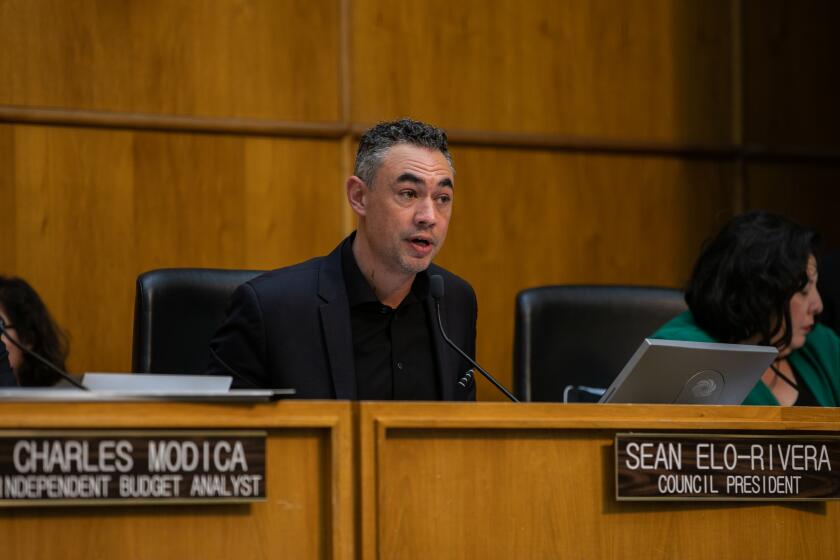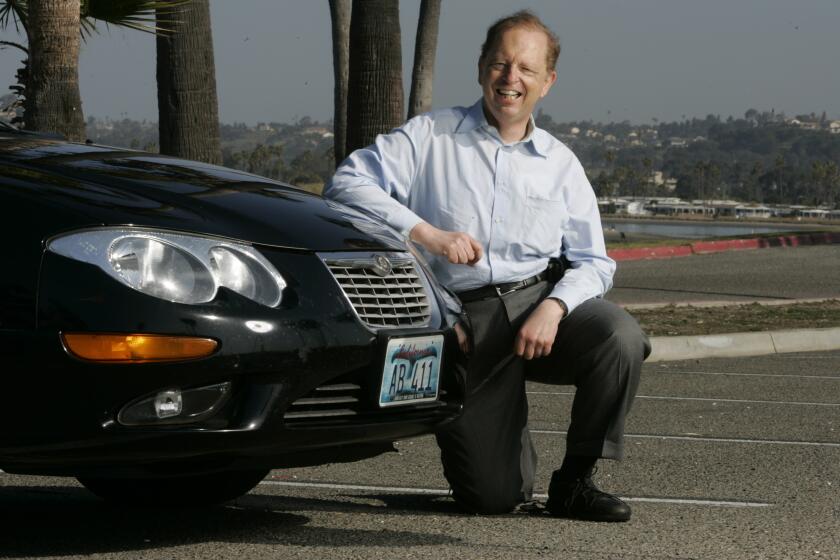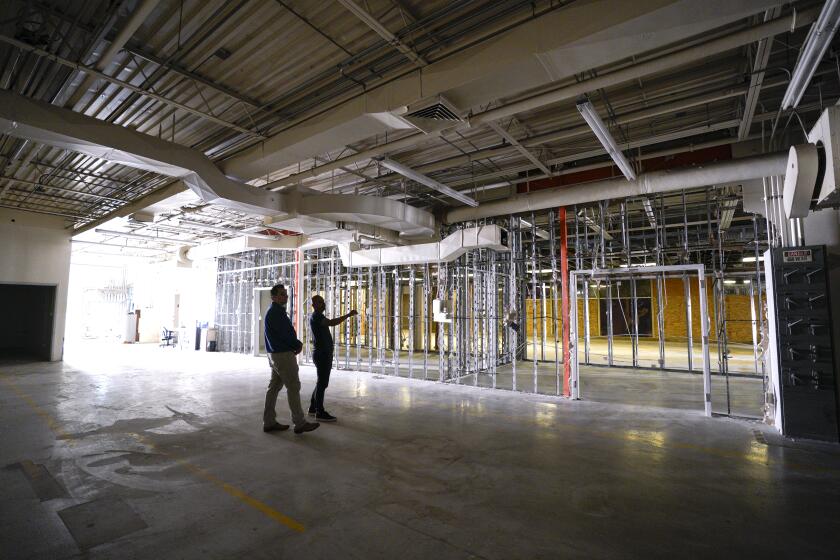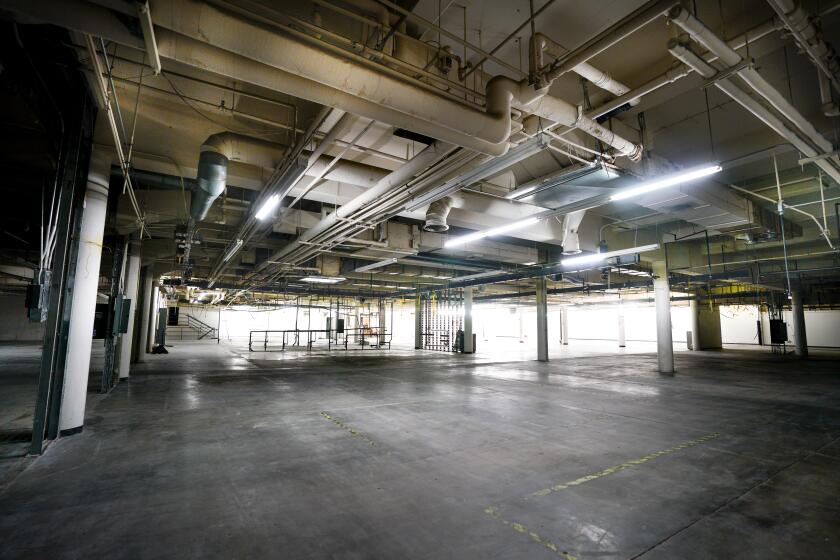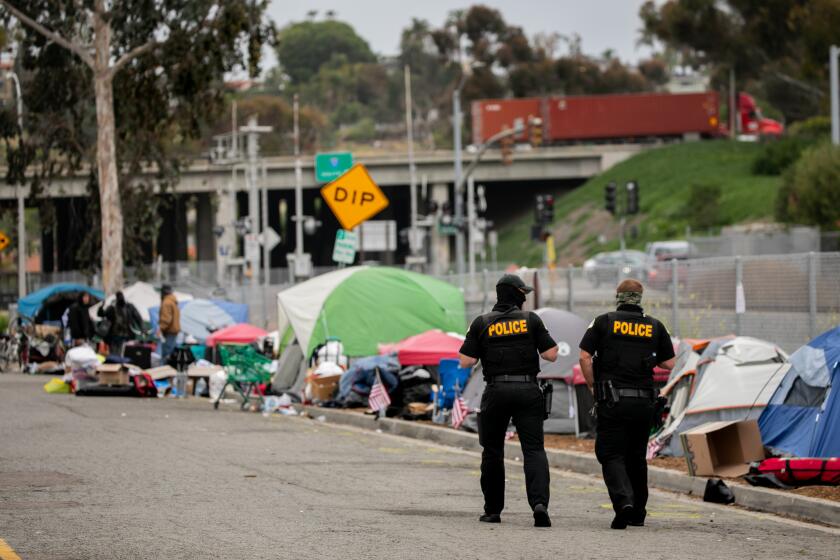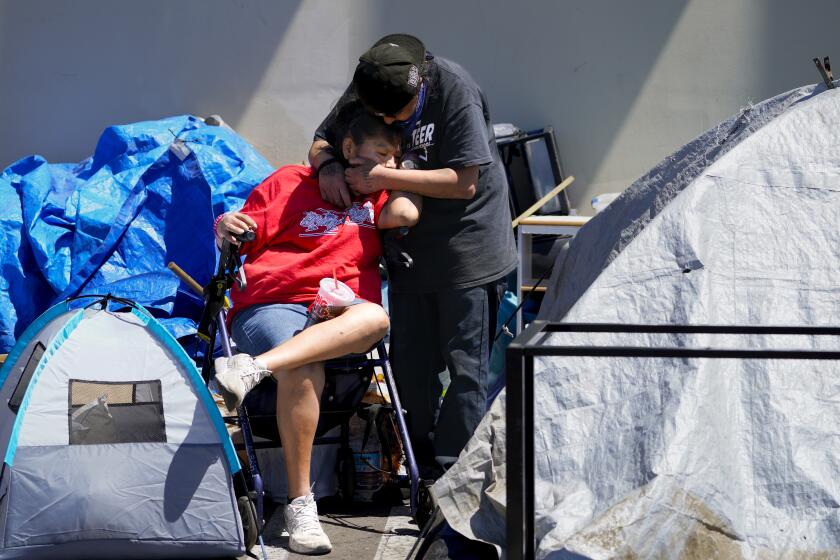Disabled homeless people challenging San Diego’s RV parking law
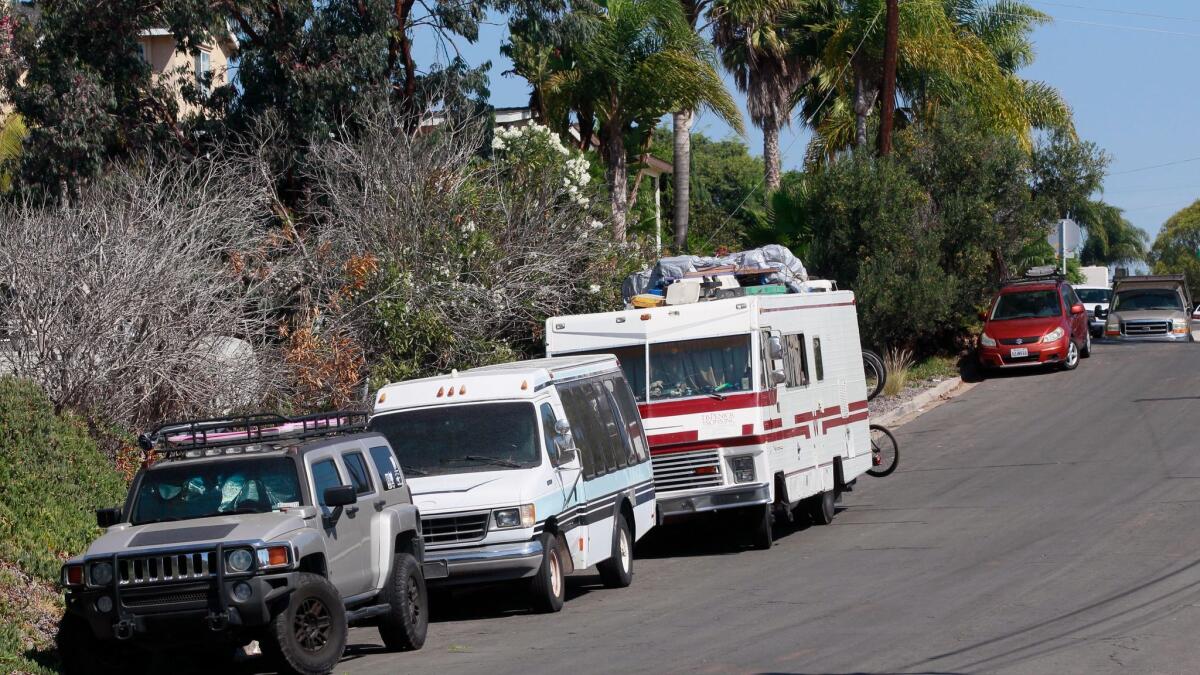
A group of disabled homeless people is threatening to sue San Diego for ticketing them for sleeping inside their recreational vehicles, contending there is no place else for them to live or sleep.
The group, represented by Disability Rights California, is demanding the city put an immediate moratorium on citing disabled people under its long-standing vehicle habitation ordinance or its relatively new RV ordinance.
They want the moratorium to stay in place until permanent housing that is affordable and accessible to disabled people is readily available in San Diego.
“The fact that our clients are older adults with disabilities makes them particularly vulnerable to serious harm from the ticketing and from the potential loss of the rudimentary shelter provided by their RVs, far more so than a person without disabilities,” attorney Ann Menasche wrote in a letter to the city.
“Paying even one ticket often means there may not be enough money to pay for food or medicine,” continued Menasche, a senior lawyer with Disability Rights California. “Living on the streets can mean serious, even life-threatening aggravation of their already compromised physical and mental health conditions.”
City Attorney Mara Elliott discussed the potential litigation with the City Council this week during a session closed to the public.
A spokesman for Elliott said “we have reviewed the letter and are advising our client appropriately,” but declined to provide any additional comment.
Disability Rights California, acting on behalf of seven homeless people with either physical or mental disabilities, contends the city’s policies violate the Americans with Disabilities Act of 1990.
Menasche said this week she believes there are hundreds more homeless disabled people in San Diego who had been living in RVs until the city cracked down on the parking of recreational and oversized vehicles in 2014.
Many of them are now homeless, she said, and some may have contributed to the city’s hepatitis A outbreak, which has been blamed on homeless people defecating on the streets.
The 2014 RV parking law prohibits such vehicles from parking on any San Diego city street or in any public parking lot between 2 a.m. and 6 a.m.
The goal was boosting safety, aesthetics and parking availability — particularly near the beach — by preventing tourists with large campers from sleeping inside their vehicles to avoid paying for hotels or other accommodations.
Many city residents had become frustrated with the RVs and what came with them, including trash on the street, loitering outside their campers and other problems that turned some neighborhoods into makeshift campgrounds.
But an unintended consequence was increasing homelessness by forcing on to the streets some people who had been sleeping in RVs, Menasche said.
She said when it comes to forcing disabled homeless people on to the streets, the city appears to be breaking the law by enforcing the RV ordinance and the city’s more general vehicle habitation ordinance.
Disabled people, who receive a monthly check from the government of about $900 because they aren’t capable of working, can’t come close to affording San Diego’s average rent of just over $1,800 for a two-bedroom apartment, she said.
And monthly fees at RV parks range from $700 to $1,650, Menasche said.
“Under the ordinances, our clients have no place anywhere in the city to legally park their RVs at night,” said Menasche, adding that it’s clearly much safer for these people to be sleeping in an RV than sleeping on the street.
Tickets under the RV ordinance come with a $100 fine and a $12.50 state surcharge, while tickets under the vehicle habitation ordinance come with a $50 fine and the same surcharge.
In addition, fines for either violation double if not paid within 21 days. And five tickets for either violation prompts the city to impound the vehicle.
While disabled homeless people could seek slots in city shelters, Menasche said those are not “medically appropriate” environments for them.
Those who are physically disabled may struggle with stairs in shelters or other hurdles. And it’s even worse for those with mental health problems, she said.
“As a result of their mental health disabilities, none of my clients can tolerate the noisy, dirty, unsafe and overcrowded conditions and virtual lack of privacy characteristic of shelters,” Menasche said.
City officials met recently with Menasche about her concerns, but she said this week that no progress was made toward a moratorium or any other solution.
“People are still getting ticketed and still getting their vehicles taken so we need a moratorium or a temporary halt,” she said. “We are merely asking for an accommodation and so far we haven’t gotten it.”
david.garrick@sduniontribune.com (619) 269-8906 Twitter:@UTDavidGarrick
Get Essential San Diego, weekday mornings
Get top headlines from the Union-Tribune in your inbox weekday mornings, including top news, local, sports, business, entertainment and opinion.
You may occasionally receive promotional content from the San Diego Union-Tribune.





